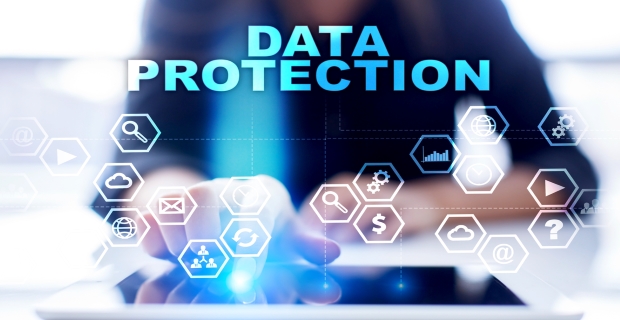E-Business
Data Privacy Day: Celebrating Citizen’s Right to Privacy And Protection in Nigeria

By Mubarak Umar
2022 marks the third year in which Nigeria will be joining the international community to celebrate the World Data Privacy Day – an international event that occurs on January 28th of every year.

The purpose of Data Privacy Day is to raise awareness, promote privacy and data protection best practices. It is currently observed in the United States of America, Canada, and over 40 European countries since 2007. The international celebration offers opportunities for collaboration among governments, industries, academia, nonprofit organizations, privacy professionals, educators, etc.
As a global event, Data Privacy Day encourages: compliance with Data Privacy laws and regulations; dialogues among stakeholders interested in advancing data protection and privacy and provides a robust platform for global networking and local action on mutually cherished principles of data privacy.
The initiative that was initially on raising awareness to protect information of government and private sectors’ business transactions, expanded over the years to include families, consumers and all online activities as a result of revolution brought by digital devices.Of a truth, a vast majority of our people are generally unfamiliar with the risks involved in data processing. In the same vein, they are hardly aware of what they can do if they consider that their rights have been breached.
There are approximately 108.75 million internet users in Nigeria and the figure is projected to grow to 143.26 million by 2026. According to Statista, a leading provider of market and consumer data, internet penetration stood at 51.44% of the country’s population in 2021, and will likely reach 59.92 percent by the year 2026.
The appointment of Professor Isa Ali Ibrahim Pantami, (now Minister of Communications and Digital Economy) as the Director General, National Information Technology Development Agency (NITDA), marked a turning point in the history of data privacy in Nigeria. Under his leadership, NITDA issued the Nigeria Data Protection Regulation (NDPR) 2019. It applies to both the public and the private organizations as they process personal data of Nigerian citizens and Nigerian residents anywhere in the world.
The Regulation is aimed at protecting the right to privacy, creating the right environment for digital transactions, job creation and improving information management practices in the country.
Working in concert with the Federal Ministry of Communications and Digital Economy, NITDA has sustained the momentum of data privacy protection in Nigeria. For instance, from approximately 600 organizations filing privacy audit report in 2020, Nigeria now has at least 1230 organizations in 2021.
The incumbent Director General of NITDA, Kashifu Inuwa, CCIE, memorably shared Nigeria’s strides in the international community thus: “in less than 2 years of active implementation of NDPR in Nigeria, we were admitted to the Common Thread Network (a Network of Data Protection Authorities of Commonwealth countries).
We also got admitted as a full member of the Network of African Data Protection Authorities (NADPA). Our contribution at the Africa Union’s Policy and Regulatory Initiative for Digital Africa (PRIDA) Data Protection Laws’ Harmonization Work Group led to Nigeria being considered for inclusion in the list of countries where a developed framework for data laws harmonization was tested.”
The impact of NDPR on job and wealth creation is also remarkable. 7,680 jobs were created, and 5,746 Nigerians were trained on Nigeria Data Protection Regulation (NDPR) in 2021.
The sector is currently valued at N4,080,000,000, using median value of audit implementation cost, according to the Director General of NITDA, Kashifu Inuwa, CCIE.
Before the introduction of the NDPR, no Nigerian entity could boast of full compliance with data protection laws.
A handful of multinationals had some level of compliance imposed on them by their parent companies. The narrative changed drastically within one year. From zero compliance in 2018 Nigeria now has over 1230 organizations filing NDPR Compliance.
The place of NDPR in human rights jurisprudence have been litigated in our courts. Gladly, our courts, as the bastion of justice, have established a binding precedent to the effect that NDPR is rooted in the section 37 of the 1999 Constitution. The section provides thus: The privacy of citizens, their homes, correspondence, telephone conversations and telegraphic communications is hereby guaranteed and protected.
The implication of this is that no data controller or data processor can wish away the NDPR. See the case of Incorporated Trustees of Digital Lawyers Initiative &Ors. V. National Identity Management Commission (NIMC) CA/ IB/291/2020.
It is believed that the future of work will be fundamentally different when digital machines are deployed in virtually everything that we do. Soon, the new machines: Artificial Intelligence and Robotics will be a platform of innovation in Nigeria, especially in instrumenting, automating, tracking, and analyzing the core operations of businesses.
While exploring and utilizing these digital economy potentials, NITDA is always proactive in creating awareness on how Nigerians can protect their personal information. It is only when customers trust their activities online that digital economy will thrive.
To deter breach of data privacy, NDPR provides that: “Any person subject to the Regulation who is found to be in breach of the data privacy rights of any Data Subject shall be liable, in addition to any other criminal liability, to the following: a) in the case of a Data Controller dealing with more than 10,000 Data Subjects, payment of the fine of 2% of Annual Gross Revenue of the preceding year or payment of the sum of 10 million Naira, whichever is greater; b) in the case of a Data Controller dealing with less than 10,000 Data Subjects, payment of the fine of 1% of the Annual Gross Revenue of the preceding year or payment of the sum of 2 million Naira, whichever is greater.
This clearly shows that NITDA, acting as Nigeria’s data regulatory body, is committed to protecting citizens’ data to ensure that Nigerian businesses remain competitive locally and internationally.
Nigeria is the only country in Africa that dedicates a full week 24th – 28th January of every year to raise awareness on data protection with series of programmes, both physically and virtually.
NITDA is playing its role in the best possible way to attract investment, open more digital job opportunities for Nigeria’s teeming population and support the security architecture by effectively implementing its mandate of protecting peoples’ data.
The implication of the foregoing is that Nigeria with over 200 million citizens can tackle any prejudice or misgivings about digitization through a potent regulatory instrument on data privacy. The resulting effect is momentum for a sustainable digital economy.
This momentum will invariable create jobs for essential public services. It is however important for Nigerians to take ownership of the legal regulatory framework on data privacy with a view to sustaining the present administration’s effort in building an inclusive and sustainable digital economy.
Mubarak Umar works with NITDA, Abuja
E-Business
Half of Global Companies Build SOCs to Enhance Cybersecurity, with a Focus on Human Expertise

Among the primary reasons for establishing a Security Operations Center (SOC) are strengthening cybersecurity posture, enabling faster detection and response and gaining a competitive edge.

Interestingly, despite the increasing demand for automated cybersecurity solutions, businesses rely on skilled security professionals to make key decisions, as human expertise remains essential for effective security management.
A Security Operations Center (SOC) is a dedicated organisational unit responsible for continuous monitoring and safeguarding of a company’s IT infrastructure. Its core mission is to proactively detect, analyse and respond to cybersecurity threats.
To identify the main drivers, strategic priorities, and potential challenges in SOC planning and implementation, Kaspersky has conducted a comprehensive global study involving senior IT security specialists, managers and directors from companies with 500 or more employees.
All participants operate without a SOC but have plans to establish one in the near future. The study spans 16 countries across APAC, META, LATAM, Europe, and Russia, providing valuable insights into the emerging trends and best practices in SOC development worldwide.
The findings of the research reveal that 50% of companies intend to establish SOCs to strengthen their cybersecurity posture, and 45% are motivated by the need to address increasingly sophisticated and dangerous threats.
Other drivers include budget optimisation, the necessity for faster detection and response, and the expansion of software, endpoints and user devices – factors that demand more comprehensive and layered security measures.
These are cited by 41% of organisations. Additionally, 40% seek better protection of confidential information, 39% aim to meet regulatory requirements and one-third (33%) expect SOC capabilities to provide a competitive edge. Larger enterprises tend to cite each of these reasons more often, reflecting the broader operational and regulatory pressures they experience.
Continuous monitoring becomes the leading SOC requirement
Among the key functions organisations plan to delegate, 24/7 security monitoring leads at 54%. This around-the-clock vigilance enables early detection of anomalies, prevents escalation and sustains cyber resilience in real-time. This demand highlights a strategic requirement for proactive risk management, as organisations aim to defend against persistent threats that can strike at any moment.
Companies intending to fully outsource SOC operations show a stronger interest in applying “lessons learned” methodologies, whereas those developing internal SOCs focus more on access management to maintain tighter control.
Human expertise drives SOC technology choices
While SOCs use advanced technology, the choices made by organisations show that human analysts are very important. Among the solutions that organisations plan to include in SOC are – Threat Intelligence Platforms (48%), Endpoint Detection and Response (42%) and Security Information and Event Management systems (40%) – sophisticated solutions that automate data collection and reduce operational load, however, they depend heavily on skilled security professionals who provide critical context, interpret complex findings and make final decisions when guiding appropriate responses.
Other solutions chosen include Extended Detection and Response (38%), Network Detection and Response (37%) and Managed Detection and Response (33%). Large enterprises tend to adopt more technologies (5.5 per SOC on average), while smaller ones integrate fewer (3.8).
“To successfully build a SOC, companies must prioritise not only the right mix of technology but also the careful planning of processes, clear goal-setting and effective resource distribution.
“Well-defined workflows and continuous improvement are essential to ensure that human analysts can focus on critical tasks, making the SOC a proactive and adaptable component of their cybersecurity strategy,” comments Roman Nazarov, Head of SOC Consulting at Kaspersky.
E-Business
Nigerian Terra Industries Secures $11.8m for Expansion

Terra Industries, a Nigerian defence technology startup, has raised $11.75 million to expand its development of defensive systems that protect critical facilities across Africa.

The fundraising round was led by Silicon Valley venture firm 8VC, which was founded by Palantir co-founder Joe Lonsdale.
Other investors in the round include Valour Equity Partners, Lux Capital, SV Angel, and Nova Global, as well as African-focused funds Tofino Capital, Kaleo Ventures, and DFS Lab.
Terra Industries, founded in Abuja by Nathan Nwachuku and Maxwell Maduka, provides multi-domain security solutions for both air and land. Its solutions are intended to detect and respond to threats including terrorism, sabotage, and armed attacks on infrastructure.
The company’s product portfolio includes surveillance drones, ground-based robotic systems, and fixed monitoring towers deployed around sensitive locations.
Co-founder and CEO Nathan Nwachuku said the company has now fully embraced its identity as a defence-focused startup, citing the growing urgency of security challenges across Africa.
He said safeguarding critical infrastructure from terrorist threats has become unavoidable.
Nwachuku argues that protecting Africa’s infrastructure requires a different approach, one that combines local manufacturing, end-to-end system control, and software capable of independently identifying and responding to threats over large areas.
The company aims to position itself as a defence prime, similar to the role played by firms such as Anduril Industries and Palantir in the United States.
Nwachuku also disclosed that the company had earlier raised $800,000 in pre-seed funding.
With the new funding, Terra plans to increase manufacturing capacity within Africa, establish additional defence production facilities, and expand its artificial intelligence and software teams.
While software offices are planned for San Francisco and London, the company said manufacturing operations will remain on the continent.
E-Business
Kaspersky Warns Telecom Threats from 2025 will Carry into 2026 as New Technology Adds New Risk

Kaspersky Security Bulletin reviews what shaped telecom cybersecurity in 2025 and what is likely to persist in 2026. Advanced Persistent Threat (APT) activity, supply-chain compromise, DDoS disruption and SIM-enabled fraud continued to pressure operators in 2025, while newer technology deployments introduce additional operational risk.

In 2025, telecom operators faced four broad threat categories. Targeted intrusions (APTs) continued to focus on gaining stealthy access to operator environments for long-term espionage and leverage through privileged network positioning.
Supply chain vulnerabilities remained an entry point: telecom ecosystems rely on many vendors, contractors and tightly integrated platforms, so weaknesses in widely used software and services can provide a path into operator networks. Finally, DDoS remained a practical availability and capacity problem.
Kaspersky Security Network showed that last year, between November 2024 and October 2025, 12,79% of users in the telecommunications sector encountered web threats and 20,76% faced on-device threats. 9,86% of telecom organisations worldwide experienced ransomware.
At the same time, the telecommunications sector is moving from rapid technological development to broad implementation — and the report argues that this shift creates new opportunities and new operational risks for 2026.
Kaspersky highlights three areas where technology transitions could introduce disruption if rolled out unevenly or without strong controls: AI-assisted network management, where automation can amplify configuration errors or act on misleading data; post-quantum cryptography transitions, where rushed deployment of hybrid and post-quantum approaches could cause interoperability and performance issues across IT, management and interconnect environments; and 5G-to-satellite integration (NTN), where expanding service footprints and partner dependencies introduce new integration points and potential failure modes.
“The threats that dominated 2025 — APT campaigns, supply chain attacks, DDoS floods — aren’t going away. But now they intersect with operational risks from AI automation, quantum-ready cryptography, and satellite integration.
Telecom operators need visibility across both dimensions: maintaining strong defences against known threats while building security into these new technologies from day one. The key is continuous threat intelligence that spans from endpoint to edge to orbit,” said Leonid Bezvershenko, senior security researcher at Kaspersky Global Research & Analysis Team.

 E-Financial3 days ago
E-Financial3 days agoWema Bank Upgrades ALAT Banking App

 General News3 days ago
General News3 days agoFirm Launches AI-powered Platform to Simplify New Tax Laws

 Telecom3 days ago
Telecom3 days agoX Suspends Twitter Account for Rules Violation

 E-Business3 days ago
E-Business3 days agoStudy Reveals 88.5% of Phishing Attacks Focus on Stealing Account Credentials

 General News2 days ago
General News2 days agoPalmPay, Premier Cool to Reward 10,000 Nigerians with ₦100m in “10k for 10k Campaign”

 News2 days ago
News2 days agoNigeria, Others Lag Behind as Egypt Tops Africa in AI Readiness

 E-Financial2 days ago
E-Financial2 days agoEcobank Joins Trillion-naira Club for the First Time in 20 Years

 E-Business2 days ago
E-Business2 days agoKaspersky Warns Telecom Threats from 2025 will Carry into 2026 as New Technology Adds New Risk

























